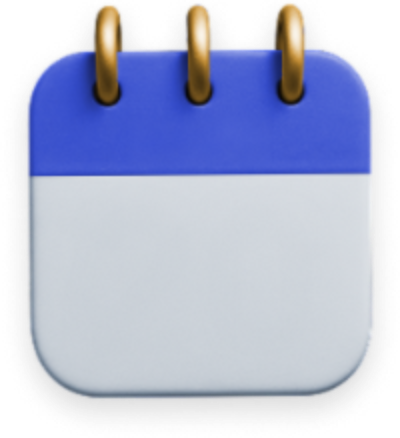MFL – French
Working together for a successful future
Introduction to MFL (Modern Foreign Languages) - French
At Queensgate Primary School, we believe that learning French helps children develop the knowledge, curiosity, and understanding they need to engage with the world around them. Through exploring a wide range of topics—including vocabulary, conversations, songs, and cultural traditions—pupils build communication skills, empathy, and an appreciation of different cultures. Studying French in primary school deepens understanding of other ways of life, supports global awareness, and inspires a lifelong interest in languages and learning about the wider world.
A Message from Mrs Gibbins, our MFL (Modern Foreign Languages) Subject Leader
I absolutely love learning new languages, and teaching others lets me share and spread that excitement too. Languages are more than just vocabulary and accents —they’re about learning to communicate ideas, problem solving and they are bridges to understanding other people and a different way of life. Watching pupil’s confidence grow throughout their time at Queensgate is one of the most satisfying parts of the role and it’s so rewarding to see pupils become curious and respectful of cultures different from their own.
French Overview
Our French Curriculum Coverage outlines the progression of key skills and themes across all year groups at Queensgate. It ensures a clear and consistent approach to teaching speaking, listening, reading, and writing in French. This structured coverage supports pupils’ language development, helping them build communication skills, cultural awareness, and confidence to use another language at every stage of their primary education.
French Curriculum Overview
MFL Intent and Implementation Statement
Intent
Being able to communicate with others is a key life skill. At Queensgate Primary School, pupils are shown that learning a foreign language is an important part of being a member of a multi-cultural society and provides an opening to exploring and understanding other people’s lives. We aim to develop pupil’s natural curiosity to explore other countries, cultures and languages beyond those that they are geographically exposed to, whilst developing their ability to communicate effectively in a range of different ways.
Pupils are taught French throughout Key Stage 2 and will be equipped with the skills and techniques to learn other languages in the future. Pupils are encouraged to have the confidence to communicate for practical purposes, both in speaking and writing. They are shown that speaking a different language requires you to adapt, use skills resourcefully and learn new ways of thinking. Through a range of songs, activities, videos and interactive resources pupils will be engaged in the challenge of finding ways to express their thoughts and be prepared to continue language learning into Secondary School.
Implementation
At Queensgate Foundation Primary School pupils are exposed to basic vocabulary through daily life in Key Stage 1. They have regular lessons in French throughout Key Stage 2, using the resources and units of work from Twinkl’s PlanIt French in lower Key Stage 2, progressing to the Oak Academy in upper year groups. In Lower KS2, pupils acquire basic skills and understanding of French with a strong emphasis placed on fostering enthusiasm, confidence and developing their Speaking and Listening skills. These will be embedded and further developed in Upper KS2, alongside Reading and Writing, gradually progressing onto more complex language concepts and greater learner autonomy.
In line with the National Curriculum for MFL, pupils at Queensgate Primary school are taught to:
- Listen attentively to spoken language and show understanding by joining in and responding.
- Explore the patterns and sounds of language through songs and rhymes and link the spelling, sound and meaning of words.
- Engage in conversations; ask and answer questions; express opinions and respond to those of others; seek clarification and help.
- Speak in sentences, using familiar vocabulary, phrases and basic language structures.
- Develop accurate pronunciation and intonation so that others understand when they are reading aloud or using familiar words and phrases.
- Read and show understanding of words, phrases and simple writing.
- Appreciate stories, songs, poems and rhymes in the language.
- Broaden their vocabulary and develop their ability to understand new words that are introduced into familiar written material, including through using a dictionary or online resource.
- Write phrases from memory, and adapt these to create new sentences.
- Describe people, places, things and actions orally and in writing.
- Understand basic grammar of French, including: feminine, masculine and neuter forms and simple conjugation of high-frequency verbs; key features and patterns of the language; how to apply these to build sentences; and how these differ from or are similar to English.
Impact
The impact of our curriculum will be assessed through the following methods:
- Observing children speaking and listening in another language
- Marking of written work
- Images and videos of children completing speaking and listening activities
- Interviewing the pupils about their learning (pupil voice)
- Moderation staff meetings where pupil’s work is shared and there is the opportunity for a dialogue between teachers to understand their class’s work
- Annual reporting of curriculum taught to parents.
- Learning walks
- Annual summative assessments
The MFL subject leader will continually monitor the impact MFL teaching is having on the children’s learning, through book looks, pupil voice and drop-ins, to ensure the progress of knowledge and skills is being taught. They will help to ensure the knowledge taught is retained by the children and continually revisited and that the learners are able to apply the skills they have been taught to new vocabulary and situations. Impact will also be measured through key questioning skills built into lessons, child-led assessment such as success criteria grids, jigsaw targets and summative assessments aimed at targeting next steps in learning.
Further Information and Links to Support Learning
Please click the links below to help support your child’s MFL learning.
